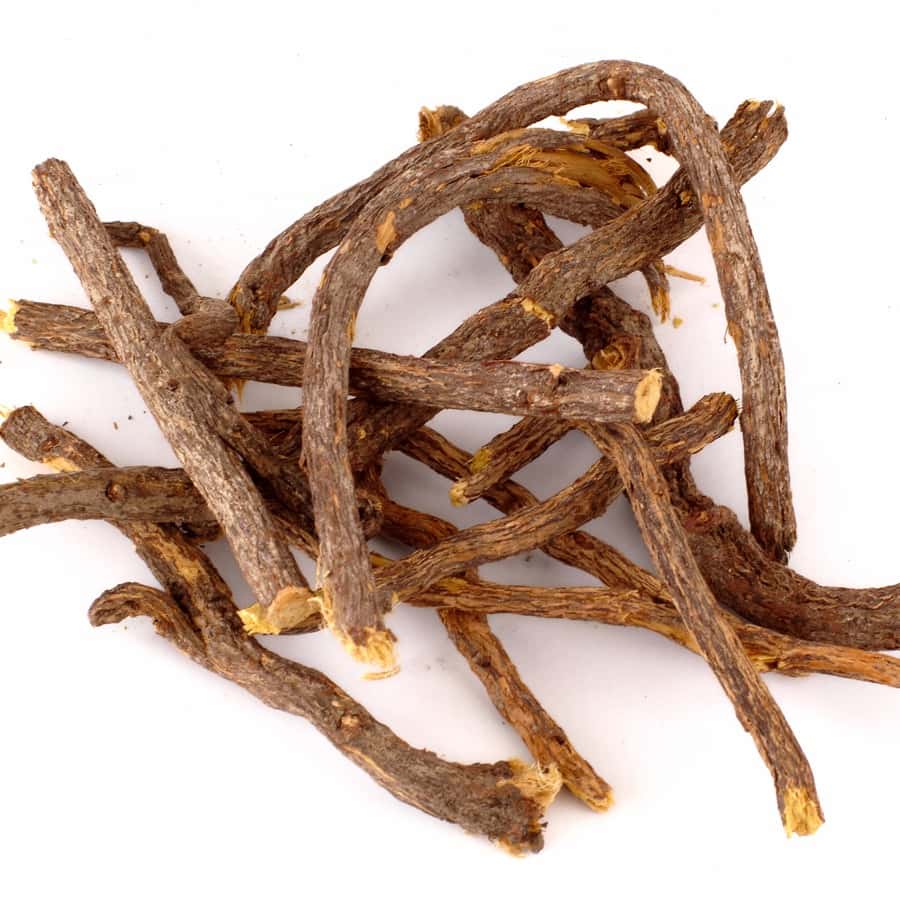
You may have heard someone express the opinion that natural medicines are safer than synthetic ones. That isn’t always the case, however. Sometimes botanical medications can have scary side effects. Licorice, for example, helps heal ulcers (Yang et al, Journal of Ethnopharmacology, March 6, 2017), alleviate hot flashes due to menopause (Ghazanfarpour et al, International Journal of Reproductive Biomedicine, March 2016), soothe the throat and calm a cough. The herb also has antiviral and hepatoprotective activity. These are all useful, but too much licorice can lead to a dangerous loss of potassium.
The Dangers of Loss of Potassium:
Q. My mother was just released from the hospital. She went in when her potassium dropped to 1.2. She could have died, and doctors were surprised that she didn’t.
I looked online and found a case study of a man who ate a lot of licorice cough drops; his potassium dropped to 1. I asked my mother and found out she has been taking a licorice root supplement for quite some time.
The doctors never asked her about anything she was taking. They just pumped her full of potassium. Three days in a hospital could have been avoided.
A. Normal potassium levels in the blood should range from 3.6 to 5.2. If potassium drops below 2.5, it becomes a medical emergency. Symptoms such as weakness, muscle cramps, irregular heart rhythms and confusion signal loss of potassium.
Licorice and Loss of Potassium:
Licorice (Glycyrrhiza glabra) is known to deplete the body of potassium. Too much, either in candy or as a supplement, can also lead to high blood pressure, fluid retention, headaches and hormonal imbalance.
Another reader shared this experience:
“I take meds for high blood pressure. I started eating licorice candy for about a week, and my blood pressure went from 135/80 to 180/98!”
Is Red Licorice a Problem?
Red “licorice” and black licorice candy flavored with anise instead of real licorice root do not cause the dangerous loss of potassium we are describing. We sometimes hear that question from readers like this person:
Q. I was alarmed to read that eating licorice can lead to high blood pressure, weakness, fatigue, loss of libido and mineral imbalance. Is this only true of black licorice?
I eat a good deal of strawberry licorice (Twizzler’s). Besides the obvious excess sugar, are there any problems with this product?
A. You have nothing to worry about (except for the calories). The ingredient that can cause so many serious side effects is glycyrrhizin. This is the natural flavor found in black licorice, but it is absent from red “licorice.”
An occasional treat rarely causes people any trouble, but those who eat black licorice regularly can experience hormone imbalance and potassium loss. This is especially dangerous for those taking diuretics, prednisone or digoxin (Lanoxin).

